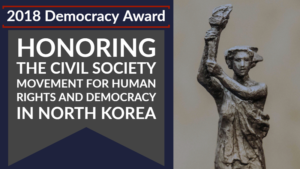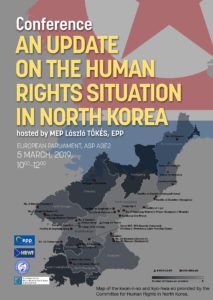This week, the South Korean parliament passed a law criminalizing the practice of floating balloons with anti-regime leaflets, cultural items and cash into North Korea. The move is causing a backlash in Washington, where lawmakers and nongovernmental organizations are worried that Seoul is sacrificing free speech and human rights to appease North Korean leader Kim Jong Un, the Post’s Josh Rogin writes:
Seoul’s actions affect Washington because the incoming Biden administration will have to act fast to come up with a new U.S. policy on North Korea. Nongovernmental organizations in Washington and human rights groups are also warning that their activities on behalf of North Korean human rights — many of which are based in South Korea — could become collateral damage.
“This bill seems to go well beyond its intended purpose of protecting communities near the DMZ,” Manpreet Singh Anand, regional director for Asia-Pacific programs at the National Democratic Institute, told me. “Criminalizing those who are merely facilitating access to information can do irreparable harm to human rights defenders and will likely embolden the regime in Pyongyang to make more anti-democratic demands.”
 Defector Kim Yong-hwa is in a bind. He’s got some packages, which the new law prohibits him from delivering, NPR adds:
Defector Kim Yong-hwa is in a bind. He’s got some packages, which the new law prohibits him from delivering, NPR adds:
Mr. Kim has just brought us over to a part of his office, and there are big plastic containers on the floor here. And in them are little transistor radios and Bibles no bigger than a pack of cigarettes, all wrapped in plastic and ready to be floated into North Korea. Kim, who runs a support group for defectors, says the new law makes him feel that South Korea is no longer a free democracy.
“We have Bibles, radios and rice all ready to send to North Korea right now,” said Kim. “Honestly, I think the South Koreans are so subservient. They have suffered because of North Korean leaders since the days of the Korean War. The North Korean leaders’ words still have huge power.”
The National Democratic Institute is one of several organizations that operate under the umbrella of the National Endowment for Democracy (NED), a U.S. government-funded network that supports various programs to improve human rights in North Korea. It’s unclear exactly which of their programs could be curtailed under the law, but U.S. human rights groups see this as only the latest example of an ominous pattern, the Post’s Rogin adds.
 “For the larger North Korean human rights community, the law presents another attempt for the current South Korean government to weaken the movement in the name of peace negotiations and inter-Korea dialogue,” NED Associate Director for Asia Lynn Lee told him.
“For the larger North Korean human rights community, the law presents another attempt for the current South Korean government to weaken the movement in the name of peace negotiations and inter-Korea dialogue,” NED Associate Director for Asia Lynn Lee told him.
Daily NK, a Seoul-based specialty news outlet, today tells a classic Wile E. Coyote-Roadrunner-style tale about a technological aid that the Northern authorities have adopted in their campaign to catch people who’ve been looking at forbidden content – and a clever method ordinary people have devised to thwart it, Asia Times adds.
[A] defector told Daily NK that many North Koreans know that the agents can “infer the content of the files from the file names,” so they are avoiding crackdowns “by changing the file names to the names of programs recently shown on Korean Central TV [KCTV].”  While agents are suspicious if they see files named after programs on KCTV, “they can’t do anything because they can’t check what was on the files,” he said.
While agents are suspicious if they see files named after programs on KCTV, “they can’t do anything because they can’t check what was on the files,” he said.
Seoul’s efforts to prevent activists from sending materials to the north has also drawn criticism from human rights groups that say the new law “compromises” freedom of expression in South Korea, RFE/RL adds.
“It doesn’t send a good signal to North Korea,” said Arnold Fang, East Asia researcher for the international rights group Amnesty International. “”It shows that any government can limit freedom of expression through new rules and that is not a good sign.”
Lawmakers aligned with President Moon Jae-in say the legislation is intended to avoid unnecessarily provoking North Korea, to ensure the safety of people who live near the border, and to secure stable relations with the North. Opponents accuse Moon of sympathizing excessively with North Korea or yielding to North Korean threats over the leafleting, the Guardian reports.
“This is a law that will block the flow of South Korea’s great values, the spirit of democracy, freedom and equality, to North Korea,” conservative opposition lawmaker Tae Yongho said during a 10-hour speech. “It’s a law aimed at joining hands with Kim Jong Un and leaving North Korean residents enslaved for good.”







